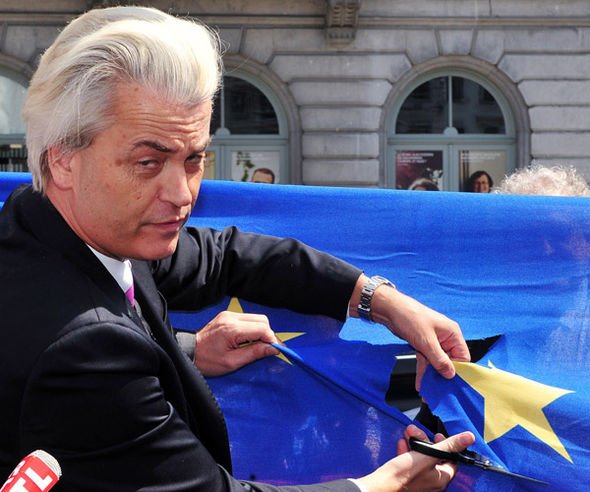Dutch voters are going to the polls in the first of three crucial eurozone elections in 2017.
The race is dominated by PM Mark Rutte’s center-right party and Geert Wilders’ Freedom Party, running on an anti-immigration platform.
Mark Rutte has said the election is an opportunity for voters to “beat the wrong sort of populism”.
Geert Wilders has pledged to take the Netherlands out of the EU, close all mosques and ban the Koran.
His party had been leading in opinion polls but they have since suggested his support may be slipping.
Voter turnout so far has been high, with turnout at midday at 33%, compared to 27% at the last election in 2012, Reuters reports.

France goes to the polls next month to elect a new president while Germany is due to hold a general election in September.
March 15election also comes amid a diplomatic spat between the Netherlands and Turkey.
Geert Wilders declared after casting his vote: “Whatever the outcome of the elections today, the genie will not go back into the bottle and this patriotic revolution – whether today or tomorrow – will take place.”
Protracted coalition talks are the likely outcome.
After casting his vote, PM Mark Rutte asked his fellow citizens to imagine how the world would react if the Freedom Party came first.
“I think the rest of the world will then see that after Brexit, after the American elections, again the wrong sort of populism has won the day,” he said.
Earlier, in TV debates, Mark Rutte and Geert Wilders clashed over how to stem immigration.
Mark Rutte dismissed Geert Wilders’s plan to close borders and mosques and to ban the Koran as “fake solutions”.
Geert Wilders accused Mark Rutte of providing better healthcare for immigrants than for the Dutch themselves.
Lodewijk Asscher of the Labor Party, the junior party in Mark Rutte’s coalition, called Geert Wilders a man of “10,000 angry tweets and no solutions”.
Several of the smaller party leaders are being seen as potential power-brokers.
Seven of the 28 parties running could win more than 10 seats in the 150-seat parliament, the polls suggest.
Christian Democrat Sybrand Buma and liberal Alexander Pechtold might go into coalition in the event of Mark Rutte’s victory.
However, other parties could end up as king-makers too, such as the Green-Left under Jesse Klaver and the Socialist party.
None are likely to take part in a coalition with Geert Wilders.
All of the parties forecast to win 10 seats or more are led by men yet women made up more than a third of MPs in the outgoing parliament (58 out of 150).
In the past, the Green-Left was regularly led by a woman, including Femke Halsema, who held the post for more than eight years (2002-2010).
Now only some of the very small parties have female leaders: Sylvana Simons from Article One (which campaigns against discrimination) and Marianne Thieme from Party for the Animals.
https://www.youtube.com/watch?v=6wrs2OoYhcA
